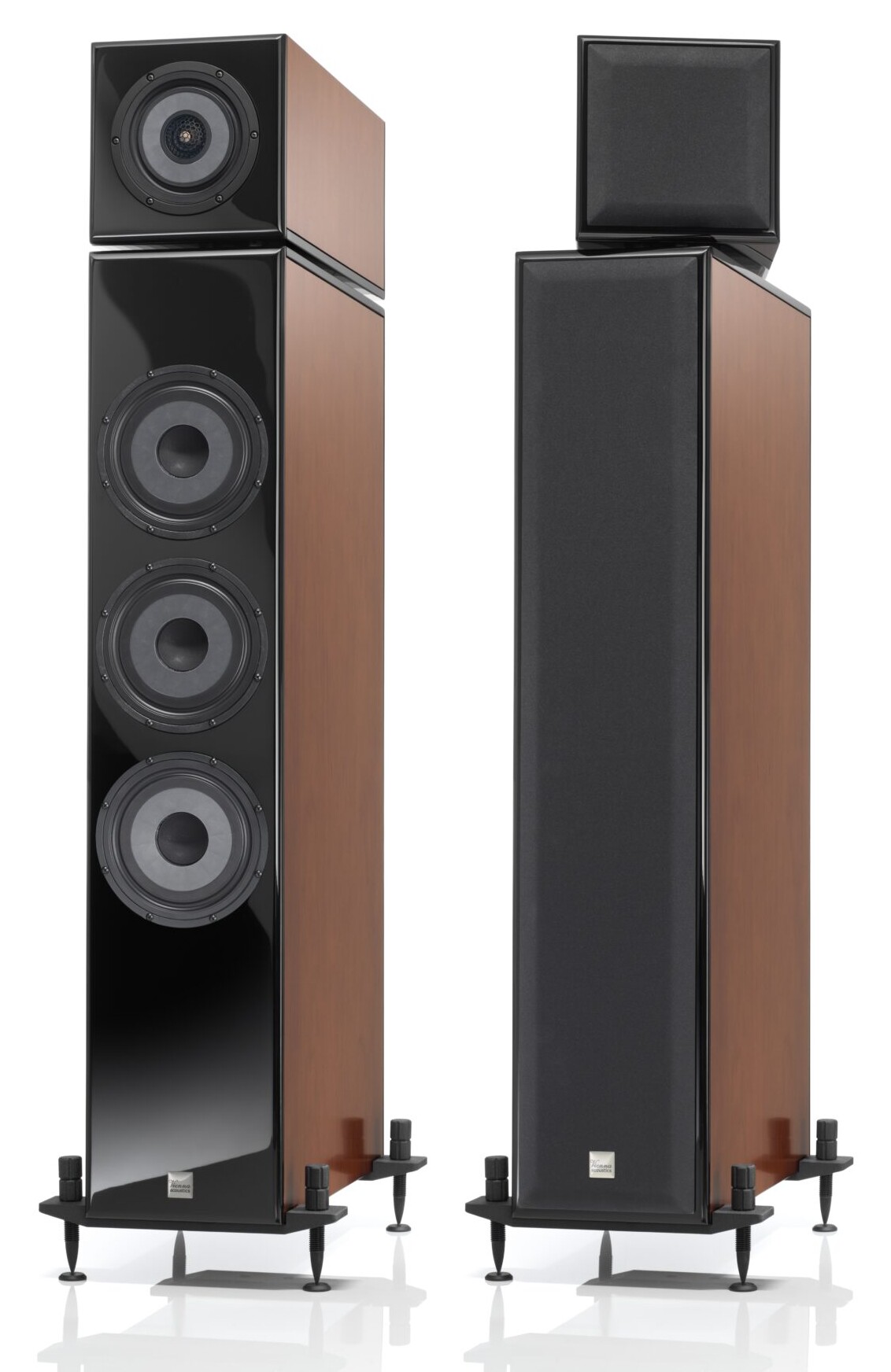Few speakers anywhere near the price of the Liszt Reference can achieve this simultaneous clarity of separation and musical purpose, mapping each instrument’s individual contribution while still presenting a lucid sense of the musical whole. In the same way that the articulation in Ólafsson’s playing is so apparent, the linkage between the three instruments is explicitly preserved.
It speaks volumes for the spatial and tonal coherence of the speaker, especially through the crossover point. Listening to the instruments ranging up and down, their lines joining, weaving and separating and there’s an almost preternatural sense of stability to the performance: Neither their location nor their sense of body or overall harmonic character changes with frequency, a quality that makes for a more convincing event and much more intelligible music.
 If you want to hear this in action, listen no further than Variation 24.
If you want to hear this in action, listen no further than Variation 24.
The piano injects the piece with jaunty brilliance and lightness of touch in the right-hand that contrasts with the developing complexity in the left. Played by the string trio, the mood shifts dramatically. The contrasting lines are more poised, the tempo more studied, the affect deeper and more reflective. The arrangement quite literally adds another dimension to the piece and the performance, both spatially and emotionally.
As always, vocal performance is the acid test of a speaker’s communicative qualities, the intelligibility of lyrics and their emotional range, but also just how familiar a ‘familiar’ voice really is? When it comes to intelligibility, there are few more exacting tests than the layered mixes, multiple overdubs, interjections and ‘particular’ vocabulary of rap. Listen to the classic, quick-fire delivery on ‘Hypnotize’ (The Notorious B.I.G. Life After Death – Puff Daddy records 78612730112) and it’s not just that the words are clearer and more easily understood, the speakers grasp the complex rhythms and set up a wicked groove – a groove that belies any thought that the Liszt Reference is all about acoustic or classical recordings. It’s a realisation underlined by the multiple voices, deep samples and mixed messages of ‘Mo Money Mo Problems’. If ever a track captured the joyous, underlying musicality and rhythmic imperative of great rap, this is it. The Viennas navigate its different layers and interlocking rhythms with a sure-footed temporal integrity that captures both the playful aspects in the performance and its dance-floor discipline.
In contrast, the challenge with Nanci Griffith has always been to get past her almost girlish voice and into the deeper sense of her songs. ‘Drive In Movies And Dashboard Lights’ (Storms – MCA MCAD 6319) is a perfect example, the breezy tune and almost naïve delivery mask the darker, more disturbing subject matter of the lyric. The Liszts effortlessly capture the subtle inflexions and emphasis that puncture the veneer of simplicity and optimism, unravelling the words that tumble together in the careful rush of the phrasing. The tonal truth in the reproduction somehow makes the gap between the music and the subject matter even more poignant. Eleanor McEvoy’s distinctive voice, accent and delivery are captured with unmistakable accuracy, perhaps the sternest test of all.

